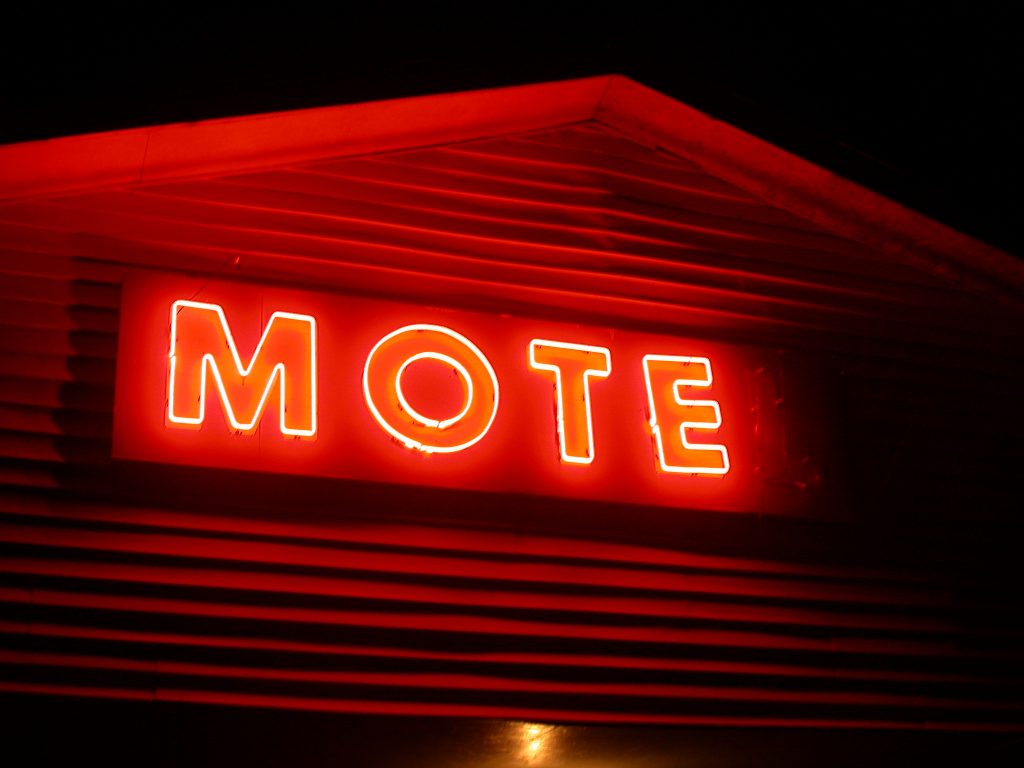 Wouldn’t it be a disappointment to have your legal claims dismissed because you missed a filing deadline? The rules that apply to time limits for filing cases can be complicated, as Top Dollar Pawn, Gun and Car Audio #5 in Shreveport, Louisiana found when Top Dollar’s lawsuit was dismissed by the trial court because it was filed after the one-year statute of limitations, the allowed period of time to bring a legal claim, had run.
Wouldn’t it be a disappointment to have your legal claims dismissed because you missed a filing deadline? The rules that apply to time limits for filing cases can be complicated, as Top Dollar Pawn, Gun and Car Audio #5 in Shreveport, Louisiana found when Top Dollar’s lawsuit was dismissed by the trial court because it was filed after the one-year statute of limitations, the allowed period of time to bring a legal claim, had run.
Top Dollar Pawn, Gun, and Car Audio loaned money to customers, using merchandise the customers gave the store as security for the loan. If a customer failed to repay the loan, Top Dollar sold the merchandise. Between August 2005 and December 2010, officers from the Caddo Parish Sheriff’s Office and the Shreveport Police Department repeatedly seized merchandise from Top Dollar that they believed had been stolen. They either kept the merchandise in their offices or returned it to the alleged original owners. No hearing was held to determine whether the customer using the merchandise as security for a loan was the lawful owner or had stolen the merchandise.
This procedure was a violation of Louisiana law, which provides a process for handling allegedly stolen goods that have been given to a pawnshop as security for a loan. Because the owners of the pawnshop have the right to due process of law, Louisiana law requires a hearing before depriving them of property. La. R.S. 37:1805.
 Louisiana Personal Injury Lawyer Blog
Louisiana Personal Injury Lawyer Blog


 After a motor vehicle collision occurs, a court will assign each driver involved a standard of care they were required to maintain. Drivers under Louisiana law are usually subject to ordinary care when driving their vehicle. However, under the law, certain motorists are held to a higher standard or are favored to have less liability if an accident occurs. This differentiation in standards was recently highlighted when a garbage truck was hit by a pickup driving on a three-lane road while pulling out of a Burger King exit.
After a motor vehicle collision occurs, a court will assign each driver involved a standard of care they were required to maintain. Drivers under Louisiana law are usually subject to ordinary care when driving their vehicle. However, under the law, certain motorists are held to a higher standard or are favored to have less liability if an accident occurs. This differentiation in standards was recently highlighted when a garbage truck was hit by a pickup driving on a three-lane road while pulling out of a Burger King exit. As individuals approach the end of their life or encounter health problems, they may utilize a general power of attorney (POA) in order to care for their property. A POA is a written authorization to represent or act on another’s behalf in private affairs, business, or some other legal matter. The individual executing the POA is the principal and the individual acting under the POA is the principal’s agent. Dealing with a POA can be difficult since it is usually exercised during a stressful period in the principal’s life. Recently, the issue of using a POA was made even more complicated when it stirred up family drama in the Parish of Lincoln District Court after an agent used the POA to transfer all of the principal’s property into his own account days prior to the principal’s death.
As individuals approach the end of their life or encounter health problems, they may utilize a general power of attorney (POA) in order to care for their property. A POA is a written authorization to represent or act on another’s behalf in private affairs, business, or some other legal matter. The individual executing the POA is the principal and the individual acting under the POA is the principal’s agent. Dealing with a POA can be difficult since it is usually exercised during a stressful period in the principal’s life. Recently, the issue of using a POA was made even more complicated when it stirred up family drama in the Parish of Lincoln District Court after an agent used the POA to transfer all of the principal’s property into his own account days prior to the principal’s death.  Suffering through an accident is bad enough, but dealing with the aftermath of that accident can be even worse without the help of a great attorney. An often overlooked but critical step in dealing with the consequences of an accident is deciding who to include or exclude from a release, which is a contractual agreement in which one party agrees to give up their right to bring a claim against another party. As Trena and Thomas Garrison learned after their accident in Baton Rouge, a small oversight on a seemingly standard release could result in a substantial loss of potential recovery.
Suffering through an accident is bad enough, but dealing with the aftermath of that accident can be even worse without the help of a great attorney. An often overlooked but critical step in dealing with the consequences of an accident is deciding who to include or exclude from a release, which is a contractual agreement in which one party agrees to give up their right to bring a claim against another party. As Trena and Thomas Garrison learned after their accident in Baton Rouge, a small oversight on a seemingly standard release could result in a substantial loss of potential recovery.  After making a successful workers’ compensation claim, an insurer may make a subrogation claim, which is the right of an insurer to recover the amount paid out in a claim from a third party that caused the claim to occur. However, failure to properly reserve this right can affect an insurer’s right to recovery and possibly bar recovery altogether. A recent lawsuit in the Orleans Parish highlighted this fact.
After making a successful workers’ compensation claim, an insurer may make a subrogation claim, which is the right of an insurer to recover the amount paid out in a claim from a third party that caused the claim to occur. However, failure to properly reserve this right can affect an insurer’s right to recovery and possibly bar recovery altogether. A recent lawsuit in the Orleans Parish highlighted this fact. When a patron is injured by a third party at a hotel, the patron might wish to seek damages from a national franchisor. There are however several criteria to establish a franchisor’s liability making it very difficult for a patron to recover in the absence of direct links between the injury and negligence. In a recent case out of New Orleans, a shooting victim was left with little recourse against the big company behind the local Motel 6.
When a patron is injured by a third party at a hotel, the patron might wish to seek damages from a national franchisor. There are however several criteria to establish a franchisor’s liability making it very difficult for a patron to recover in the absence of direct links between the injury and negligence. In a recent case out of New Orleans, a shooting victim was left with little recourse against the big company behind the local Motel 6.  In the insurance industry, one of the most important issues to consider when determining whether a claim is covered under a policy is the wording of the contract. Whether it is home, auto, life, or, as in this case a marine insurance policy, the exact words of the contract will control whether or not a specific claim will be paid out. Equally important are the laws which will control how those words are interpreted. And in a recent case out of Louisiana, one insured was out of luck over the interpretation of one small word.
In the insurance industry, one of the most important issues to consider when determining whether a claim is covered under a policy is the wording of the contract. Whether it is home, auto, life, or, as in this case a marine insurance policy, the exact words of the contract will control whether or not a specific claim will be paid out. Equally important are the laws which will control how those words are interpreted. And in a recent case out of Louisiana, one insured was out of luck over the interpretation of one small word.  When employees are fired they can often be entitled to benefits upon termination; including money payments to act as a substitute salary while the terminated employee searches for another job. While there is no federal requirement in the United States for an employer to offer severance pay, many do as it can be an attractive benefit to potential employees. Many employers choose to adopt a plan that falls under the Employee Retirement Income Security Act (“ERISA”). Employers can get tripped up however when they fail to support a denial of severance pay by substantial evidence.
When employees are fired they can often be entitled to benefits upon termination; including money payments to act as a substitute salary while the terminated employee searches for another job. While there is no federal requirement in the United States for an employer to offer severance pay, many do as it can be an attractive benefit to potential employees. Many employers choose to adopt a plan that falls under the Employee Retirement Income Security Act (“ERISA”). Employers can get tripped up however when they fail to support a denial of severance pay by substantial evidence.  Workers’ compensation laws require companies to set aside a fund to pay their employees for work-related injuries. But what happens when the employer also has long-term disability insurance and the injured employee collects both workers’ compensation benefits as well as the employer-funded long-term disability benefits? Receiving benefits from the correct source of workers’ compensation income can prevent the headache of having to pay back thousands of dollars years later.
Workers’ compensation laws require companies to set aside a fund to pay their employees for work-related injuries. But what happens when the employer also has long-term disability insurance and the injured employee collects both workers’ compensation benefits as well as the employer-funded long-term disability benefits? Receiving benefits from the correct source of workers’ compensation income can prevent the headache of having to pay back thousands of dollars years later.  In nearly every case of injury to person or property, there is a time period during which you can bring a lawsuit. When that time period ends is determined by statute. Defendants in cases where the time has past may bring an exception of prescription to have these cases dismissed. But how many times and when the exception of prescription may be raised is an issue that took center stage in an automobile accident case from Jefferson Parish.
In nearly every case of injury to person or property, there is a time period during which you can bring a lawsuit. When that time period ends is determined by statute. Defendants in cases where the time has past may bring an exception of prescription to have these cases dismissed. But how many times and when the exception of prescription may be raised is an issue that took center stage in an automobile accident case from Jefferson Parish.